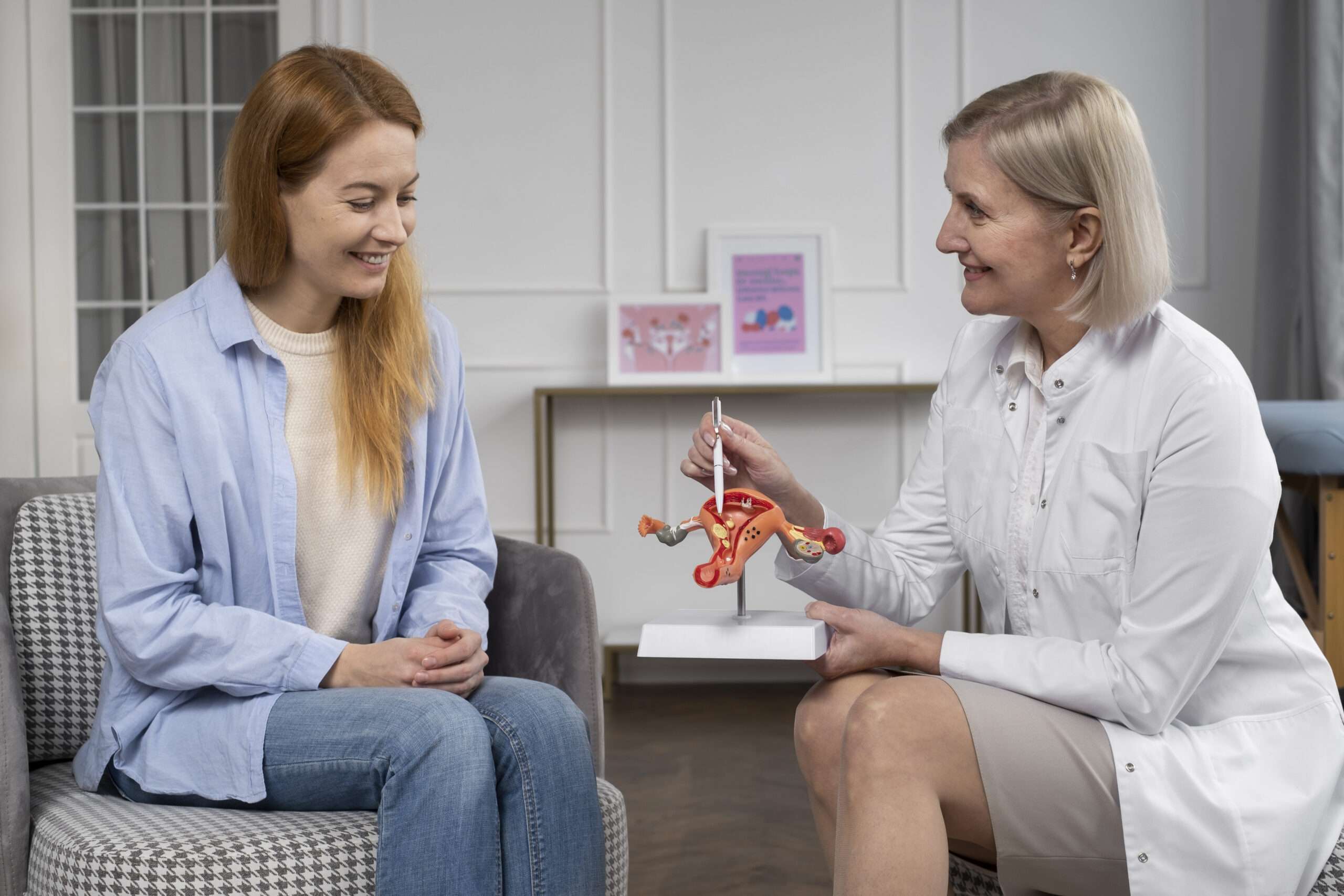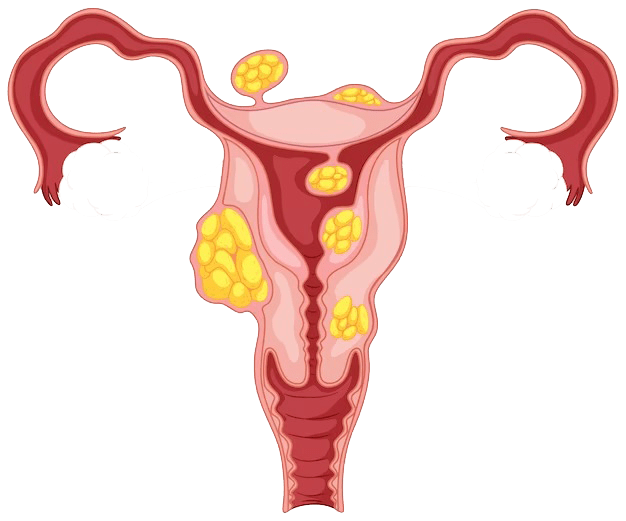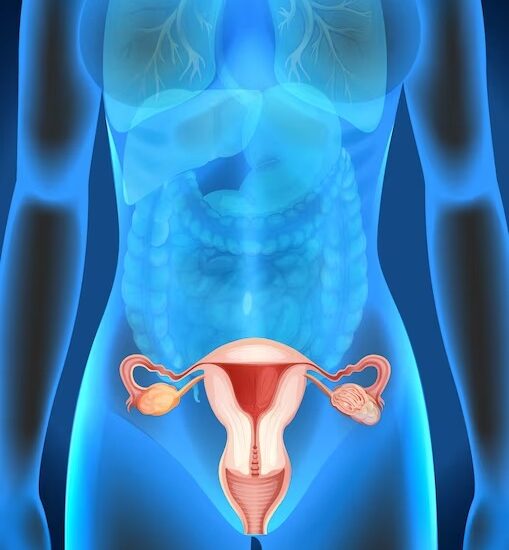Gynaecological Treatment In Mumbai
Budget Fertility Centre has highly qualified and experienced gynecologists in Mumbai who advise women on reproductive and sexual health issues. They run various tests to determine the best course of action based on a woman’s current condition.
These tests include vaginal infection testing, pelvic examination, Pap tests, and cancer risk assessments. The gynecologist’s role in a woman’s life is crucial. According to researchers, almost every woman is at risk of developing at least one of the health issues for which she will require the services of a gynecologist during her lifetime.
Menstrual irregularities, pregnancy, infertility issues, childbirth control, menopause, and other related issues fall into this category. Budget Fertility Centre recognizes the sensitivity of such issues in women. We treat her with care because we understand how painful it can be for a woman emotionally, physically, and psychologically.
Heavy bleeding, excruciating cramps, bloating, mood swings, and other symptoms are common throughout “red flag days” but often not normal. When these symptoms last for a long time, your body warns you that something is genuinely wrong.
Almost every woman on the planet will experience a gynecological issue at some point. Most of these issues are minor and easily treatable, but some are serious and affect their fertility and quality of life.
There is technology and invention, both medical and surgical, to relieve and cure gynecological problems and their symptoms, ranging from menstrual disorders to urinary incontinence.
We have compiled a list of some of the most common gynecological issues and treatment options for you in this article.
Take charge of your gynecological health – schedule your consultation today!
1. Menstrual Disorders
I am text block. Click edit button to change this text. Lorem ipsum dolor sit amet, consectetur adipiscing elit. Ut elit tellus, luctus nec ullamcorper mattis, pulvinar dapibus leo.
A menstrual disorder is characterized by heavy bleeding, prolonged bleeding while having sex, and bleeding between periods. Treatment options (medical or surgical) are chosen based on the severity of the condition.
The following are the most common menstrual disorders:
A. Dysmenorrhea
A woman may experience painful cramps, pain in the lower back, hips, inner thighs, nausea, and watery stool during the menstrual cycle. A lack of oxygen to the uterine muscles while they contract, causes pain. The severity of the pain decreases with age and childbirth.
Causes of Dysmenorrhea
Dysmenorrhea can be caused by any or a combination of the following factors:
- Fibroids: These are benign uterine tumors.
- Endometritis: Infection of the uterus.
- Adenomyosis: It is a myometrial glandular growth.
- Endometriosis: A condition in which uterine tissue grows outside the uterine walls.
- Ovarian cysts
- Intrauterine devices (IUD)
Treatment of Dysmenorrhea
Heat, mild pain relievers and exercises can treat mild dysmenorrhea, while non-steroidal anti-inflammatory drugs are used to treat severe cases.
B. Abnormal Uterine Bleeding
A normal menstrual cycle lasts 28 days on average, with the “period” of bleeding lasting 3 to 5 days. Any differences in this cycle are considered abnormal. Abnormal uterine bleeding is defined as a woman’s extreme infrequency in terms of duration and amount of bleeding, and it should be examined. Hormonal imbalance, physical abnormalities, pregnancy, and cancer are possible causes.
Abnormal uterine bleeding causes and treatment
There are two types of abnormal uterine bleeding:
1. If the patient is ovulatory, the following can be the causes:
- Poly Cyst Ovarian Disease (PCOD): It is a condition that causes the ovaries to produce follicles that grow into cysts.
- Fibroids: These are benign uterine tumors.
- Endometritis: Infection of the uterus
- UTI: Infection of the urinary tract.
How is it treated?
In case of an anatomic anomaly, the doctors remove it surgically, such as polyps or fibroids. Antibiotics are prescribed for chronic endometritis, and the IUD is removed. Antibiotics are also a very effective treatment option for urinary tract infections. Endometrial ablation or hysterectomy are recommended if the condition is severe.
2. If the patient is anovulatory, the following can be the causes:
- Menarche
- Dysfunctional uterine bleeding (DUB)
- Perimenopausal bleeding
- Extrinsic hormonal effects
How is it treated?
Fluids are given to patients with severe bleeding, commonly seen in menarcheal girls and perimenopausal women. A progesterone shot and oral contraceptives are sufficient to control the situation in less painful conditions.
C. Premenstrual syndrome (PMS)
It is a condition that affects a woman’s emotions, physical well-being, and social behavior on certain days before her menstrual cycle. Fluctuating levels of estrogen and progesterone cause it.
How is it treated?
Your doctor may advise you to:
- Exercise regularly.
- Take supplemental vitamins.
- Avoid caffeine.
- Sessions of counselling.
- Manage stress.
Prioritize your well-being with personalized gynecological treatments.
2. Urinary Incontinence
Urinary incontinence in women is classified into two types:
A. Stress urinary incontinence
The loss of urine control caused by sudden intra-abdominal pressure, such as coughing, sneezing, or laughing, is known as stress urinary incontinence.
Treatment:
- Kegel workouts.
- Stabilization devices or surgery can help improve intraurethral resting pressure.
B. Urge incontinence (Unstable bladder)
It is the inability to control urine due to uninhabitable detrusor contractions.
Treatment:
- Surgery will not help to manage this condition. Typically, doctors recommend bladder retainers.
3. Fibroids
These are benign growths that form in the uterus. It grows in sizes ranging from tiny seedlings to large growths.
Fibroids are categorized depending on the location as follows:
- Intramural fibroids: These develop within the uterine muscular wall.
- Subserosal fibroids: These are growths that protrude from the uterus’s surface.
- Submucosal fibroids: These are tumors that protrude into the uterine cavity.
Treatment options include the following:
- Hysterectomy:
Hysterectomy is a medical procedure that involves surgical removal of the entire uterus, with fibroids being the most common reason for this procedure.
- Myomectomy:
It is a type of conservative surgery. Under direct vision, the surgeon removes the strips of fibroid in the uterus, leaving it intact.
Why choose us for Gynecological Treatment in Mumbai?
- With rising women’s health issues, the presence of highly skilled gynecologists is critical! Keeping this in mind, we fill the void by providing the finest gynecologists you will ever meet in the healthcare industry.
- Some of the top gynecologists and IVF specialists in Mumbai head the Budget Fertility Centre.
- Our dedicated staff members and highly experienced gynecologists make us trustworthy in our clients’ eyes.
- Our primary responsibility is the safety of women’s health, and we prioritize it above all else.
Book Your Appointment Now!
Frequently Asked Questions
Every female between the ages of 21 to 65 must have a Pap test. The Pap test is usually performed on women between 21 to 29, with a three-year gap after their first Pap test. Women between 30 to 65 should have their HPV and Pap tests done every five years. Women over the age of 65 are generally exempt from the Pap test.
Getting tested for STDs is the best way to detect them. All relevant test results will assist you in determining whether or not you are the victim of an STD. Most of them are curable if caught early enough.
Make a list of questions to bring to your first gyno appointment. This will make you feel more prepared. A list will also assist you in not forgetting anything. You can leave the doctor’s office with peace of mind if you discuss your concerns during your first appointment.
You should see a gynecologist for the first time between the ages of 13 to 15. The consultation will be private and include general testing and examination of your reproductive health.







